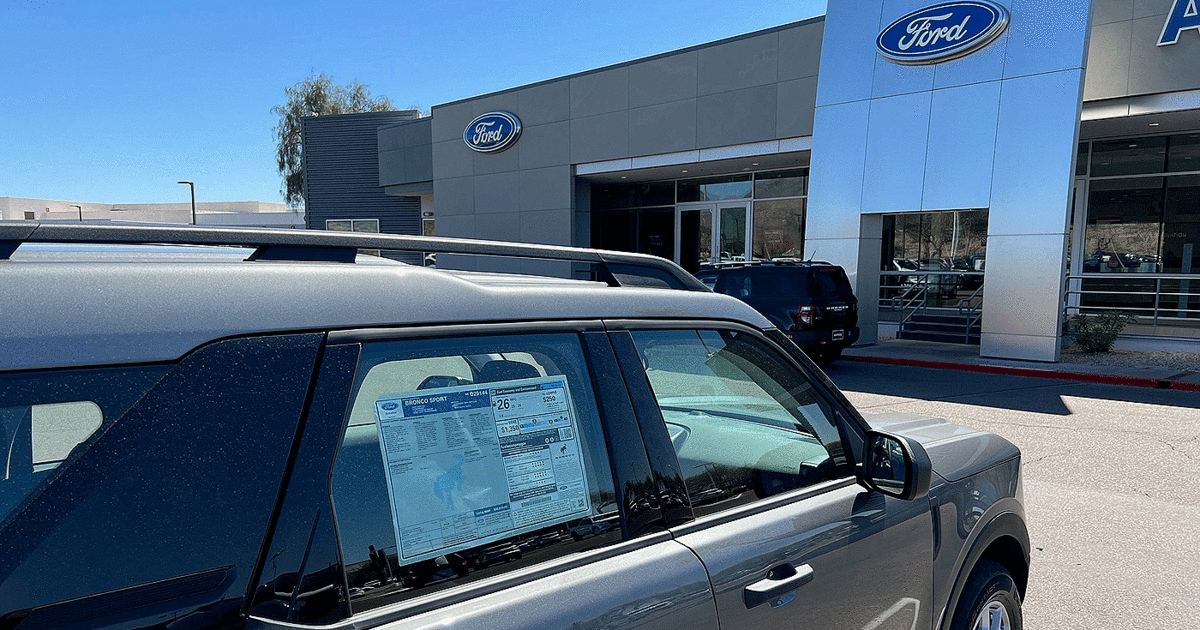
When it comes to brand loyalty, a recent study shows mainstream brand Ford and luxury brand Tesla are the most successful.
S&P Global Mobility released its quarterly loyalty insights in a webinar titled “Loyalty viewed from a broad perspective” Tuesday. Loyalty is measured by the number of households that return to the vehicle market and choose the same brand, said Tom Libby, automotive analyst for S&P Global Mobility.
The webinar drew from year-to-date data through July. The top five mainstream leaders in brand loyalty include Ford with a loyalty rate of 59.6 percent, followed by Toyota at 57.2 percent, Subaru at 55 percent, Chevrolet at 54.9 percent and Hyundai with 53.8 percent.
The top five spots for luxury leaders in brand loyalty include Tesla with 67 percent, Mercedes-Benz at 50.5 percent, BMW at 48.8 percent, Lexus at 47.7 percent and Lincoln with 47.6 percent.
Loyalty is one metric of success, “but the drawback is that you’re not looking at the rest of the market,” Libby said. “You’re not looking at any conquest.”
S&P Global Mobility went beyond brand loyalty to factor in conquest and defection ratios, which show how many consumers are attracted to the brand from another, divided by how many leave and shop elsewhere.
When those two metrics are combined, the study finds mainstream brands Hyundai, Kia, Mazda, Mitsubishi and Subaru are the most successful. Of luxury brands, the combined metrics highlight BMW, Genesis, Mercedes-Benz, Porsche and Tesla.
Newcomer luxury brands Rivian, Lucid and Polestar were removed from the conquest metrics as their newness skews their conquest and defection ratio, Libby said. However, as these new brands enter the market, they are attracting consumers who already own a Tesla. At the same time, buyers who defect from these newcomers are heading to Tesla.
It is important to note that S&P Global Mobility uses household data that does not account for whether a household purchased from a new brand but still owns a vehicle from the brand they defected from, Libby explained. In addition, the company gathers its data by purchasing registration data from every state, so all numbers are actual, not projections, Libby added.
Shortages continue to affect loyalty
While loyalty rates have increased slightly since its last quarterly assessment, S&P Global Mobility says inventory shortages are still affecting brand loyalty.
When there is less to choose from, “you have a higher probability that the household that returns to the market will not see what they want at their existing brand,” Libby said. That’s when customers defect to another brand, and in the last three months more households are defecting than staying loyal, the report shows. But another study contradicts that conclusion. In its Tuesday brand loyalty release, J.D. Power said the opposite, citing supply issues as helpful to brand loyalty.
S&P Global Mobility recommends brands protect their loyalty base by using targeted marketing tools as supply issues persist.
“Your existing customers — that’s your bread and butter. That pays your rent,” Libby said. “So you need to do whatever is necessary to keep them.”
Tesla’s unique stronghold over consumers continues
Returning this quarter is S&P Global Mobility’s findings that point to Tesla’s strength, which is a key takeaway for brands.
The loyalty review also looked at manufacturer loyalty year-over-year, with Tesla triumphing over General Motors this year following GM consistently holding the top spot since 2015.
“Tesla, remember, is a manufacturer and a brand, so they benefit, frankly, from only having one brand which does very, very well,” Libby said.
GM is now second, followed by Hyundai, Ford and Toyota.
With the highest loyalty rate of 67 percent, Libby wanted to see who Tesla is taking buyers from.
“If you say, ‘OK, who is Tesla hurting the most?,’ putting aside the newcomers, it’s the European brands,” he said. Around 7 percent of buyers who defect from Mercedes-Benz, Audi, BMW and Porsche go to Tesla next, Libby added.
“The EV tsunami is coming’
Two Tesla models — the Model Y at 26.2 percent and the Model 3 at 24.7 percent — make up more than half of all EV registrations in July, according to S&P Global Mobility. The Chevrolet Bolt at 6.9 percent is the third most registered EV. Tesla appeals to both mainstream and luxury brands, the webinar presentation pointed out.
The webinar’s fourth and final takeaway warned brands to “develop and implement strategies to counter Tesla’s strength.”
“It’s sort of a common comment that, over time, ‘Tesla will go down,'” Libby said. “Well, we haven’t seen that yet. And also, Mr. Musk, he’s not one to sort of sit still, sit back and smoke a cigarette, so you want to, basically, you want to be prepared that he’s going to continue to be aggressive with new products.”
As the EV market grows, it’s important for brands to study the consumer profiles of all customers — EV, hybrid and gasoline buyers. When an EV customer contacts your dealership, Libby said to be as ready as possible.
“The EV tsunami is coming,” he said. “It’s just started. We are just seeing the tip of the iceberg. The number of models coming is going to be overwhelming within the next couple of years. Be ready for it.”